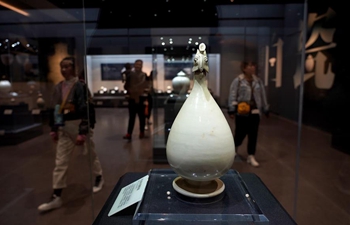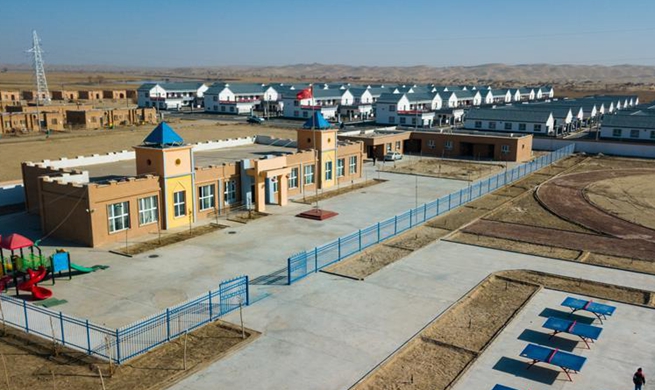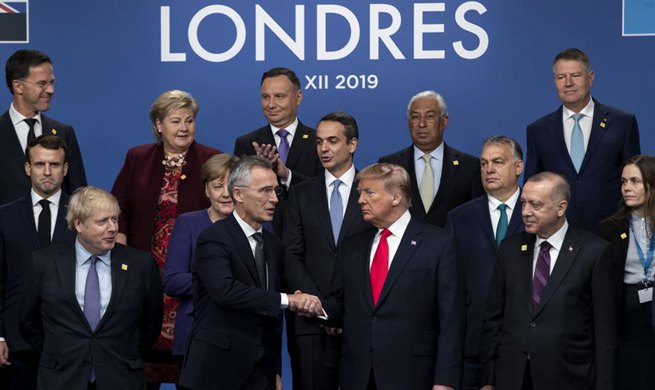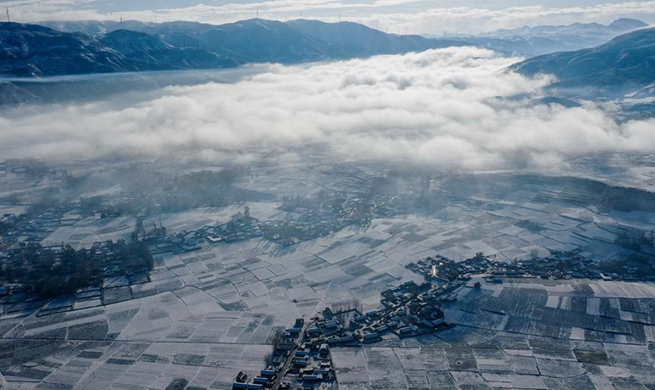by Victoria Arguello
BUENOS AIRES, Dec. 4 (Xinhua) -- The U.S. decision to reimpose tariffs on steel and aluminum imports from Argentina and Brazil is a protectionist measure that shows it is flouting its responsibility in maintaining the international balance of trade, according to economist Jorge Marchini.
While the tariffs are a blow to the South American steel and aluminum industries, the disdain the U.S. shows for the stability of peripheral economies is more of a concern, said Marchini, a professor at the University of Buenos Aires (UBA) and vice president of the Foundation for Latin American Integration (FILA).
U.S. President Donald Trump announced the tariffs on Monday via Twitter, alleging Argentina and Brazil have allowed their currencies to devalue in a bid to make their exports more competitive, harming American farmers.
This rise in protectionism makes it tough for Latin American countries, which invariably have balance of payment problems they must counter by trying to boost exports to an increasingly closed off international market, said Marchini.
"Latin American countries have this difficulty with balance of payments ... so these countries are being urged to export more, and at the same time, markets that could absorb said exports are being closed," he said.
Even worse, he said, a central country like the United States, with a historical and significant presence in the region, decides to close itself off, choking or pressuring Latin America, without taking its responsibility as a central economy in the international balance.
The tariffs harm Argentina's steel and aluminum industry, whose exports are valued at around 700 million U.S. dollars a year. For Aluar, the country's top aluminum company, its sales to the United States represent 40 percent of its total production.
Trump's decision to reimpose the tariffs "reverses" his own decision last year to exempt the South American country from the protectionist measure, along with Brazil, Australia, the European Union and South Korea.
"It's a very surprising about-face that generates uncertainty and disagreement, especially in Argentina's case given Argentina's historic difficulties and positioning alternatives with respect to the United States," said Marchini.
Latin American countries need to show greater unity in dealing with "the threat of these protectionist policies," said the economist.
"In a climate of protectionism and recession we have to work on alternatives of regional unification, not competition. The region would not benefit from having countries enter into a framework of competitive devaluation," he said.
"We have to work on complementarity and avoid the path of unilateral salvation. That doesn't mean forgetting about the asymmetries that exist in the region, but rather it means trying to tackle them," Marchini said.
South American trade bloc Southern Common Market (Mercosur) "is a starting point" and "an existing framework," but it has faced restrictions and difficulties in harmonizing regional trade, he said.
"It is necessary to think about regional unity ... because this type of situation must be confronted with a common policy," Marchini said, stressing that "the unity of the biggest countries in the region, including Brazil and Argentina, is fundamental" to success.

















